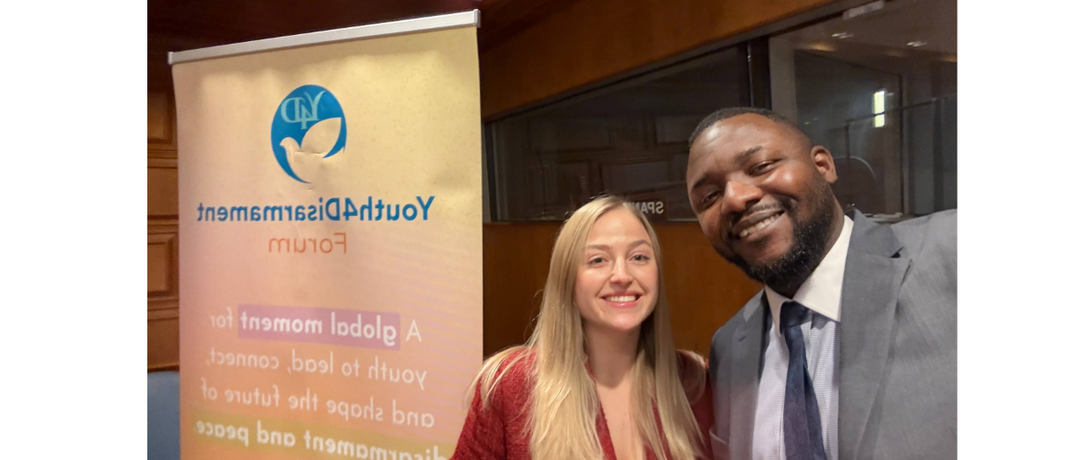In mid-October, Open Nuclear Network (ONN) participated in a series of high-level disarmament engagements in New York, contributing youth leadership, expert insights, and civil society perspectives to the ongoing work of the UN General Assembly First Committee.
Youth4Disarmament Forum: A First-of-Its-Kind Gathering of Young Leaders
On 16–17 October, the UN Youth4Disarmament Forum convened for the first time at the UN Headquarters, bringing together 26 young leaders and experts from around the world. Organised by the United Nations Office for Disarmament Affairs (UNODA), the Forum focused on nuclear weapons and emerging technologies, while marking key disarmament milestones: 80 years since the atomic bombings of Hiroshima and Nagasaki, and 55 years since the adoption of the Treaty on the Non-Proliferation of Nuclear Weapons (NPT).
ONN was represented by Kseniia Pirnavskaia, ONN Engagement & Network Coordinator, and Olamide Samuel, ONN Network & Engagement Specialist.
Moderating the High-Level Opening Panel
Kseniia Pirnavskaia moderated the Forum’s High-Level Opening Panel, guiding an in-depth discussion on how emerging technologies are reshaping the dynamics of disarmament and non-proliferation.The conversation centered around three core forces influencing today’s nuclear and technological landscape:
- Speed: faster decision-making cycles that increase risks but also create opportunities for smarter peace tools
- Opacity: the growing complexity of systems that can erode trust unless countered with transparency and cooperation
- Diffusion: rapidly spreading dual-use technologies that challenge traditional governance but can also diversify and strengthen the field
She highlighted the urgent need to adapt global nuclear policy frameworks to a new technological era, bridge generational and disciplinary divides and uphold the humanitarian imperatives at the core of disarmament efforts.
Image Credit: UN TV
Participating in the Side Event
Olamide Samuel also spoke at the Forum’s side event, “The Future Won’t Wait: Youth Policy Pathways on Nuclear Weapons and Emerging Technologies.” He underscored how emerging technologies alter nuclear risk, and emphasised that any proposed Working Group on Emerging Technologies and Nuclear Risk should be anchored in existing multilateral processes, including the NPT and TPNW review cycles and P5 risk-reduction dialogues, to reinforce, rather than duplicate, global efforts.
ONN extends appreciation to UNODA’s Youth4Disarmament team for shaping a meaningful and substantive gathering that foregrounds youth leadership in advancing international peace and security.
Image Credit: ONN
Contributing to the UNGA First Committee: Delivering an NGO statement
On 17 October 2025, Olamide Samuel also delivered a statement on behalf of the GP WMD Counter Disinfo Initiative. The intervention focused on the intensifying challenge of information manipulation in the chemical, biological, radiological and nuclear (CBRN) domains. Disinformation in these fields erodes trust in institutions, weakens confidence in international treaties and undermines cooperation essential to global security. The statement underscored the importance of integrating information integrity into the broader disarmament agenda, ensuring that the international community can rely on accurate, transparent and evidence-based dialogue as it confronts fast-changing technological and geopolitical realities.
Image Credit: ONN
